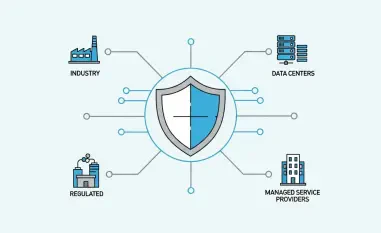Imagine a covert operation where foreign agents infiltrate American companies, not through physical espionage, but by masquerading as remote IT workers using stolen identities, a tactic that poses significant risks to national security. This alarming reality came into sharp focus as the US Treasury Department’s Office of Foreign Assets Control (OFAC) announced sanctions against a Russian individual and a Chinese company for facilitating North Korean IT fraud. These schemes have funneled millions to Pyongyang while posing severe cybersecurity risks to US businesses through data theft and malware deployment. The urgency of this issue cannot be overstated, as it intertwines financial exploitation with national security threats, demanding immediate attention from both government and private sectors.
Breaking News: Sanctions Unveiled Against North Korean IT Fraud Enablers
On Wednesday, the US Treasury Department took decisive action by imposing sanctions on Vitaliy Sergeyevich Andreyev, a Russian national, and Shenyang Geumpungri Network Technology Co., Ltd, a Chinese company, for their roles in supporting North Korean IT worker scams. These deceptive practices involve North Korean operatives using fake identities to secure jobs at American firms, generating substantial revenue for the Pyongyang regime. The announcement marks a significant step in disrupting illicit financial networks that exploit US businesses while highlighting the dual threat of economic fraud and cyber vulnerabilities.
The sanctioned parties are accused of playing critical roles in enabling these schemes. Andreyev facilitated cryptocurrency-to-cash conversions, transferring around $600,000 to North Korean entities, while Shenyang Geumpungri, identified as a front for previously sanctioned firms, has generated over $1 million since 2025 for organizations tied to Pyongyang. This event underscores the sophistication of North Korea’s tactics, blending identity fraud with cyber operations, and signals the US government’s commitment to curbing such activities through targeted enforcement measures.
Key Players Exposed in North Korean Fraud Network
Delving deeper into the sanctions, Vitaliy Sergeyevich Andreyev emerges as a pivotal figure, having collaborated with North Korean officials to channel funds to Chinyong Information Technology Cooperation Company, a previously sanctioned entity. His actions in converting digital currency into tangible cash reveal a critical link in the financial pipeline supporting these illicit operations. The scale of his transactions highlights how individual actors can significantly bolster state-sponsored fraud networks.
Similarly, Shenyang Geumpungri’s involvement points to a broader web of front companies masking North Korean interests. By generating substantial revenue for entities subordinate to Pyongyang, this company exemplifies how seemingly legitimate businesses can obscure their ties to sanctioned regimes. US authorities have emphasized that disrupting these key players is essential to dismantling the financial infrastructure that fuels North Korea’s deceptive practices.
Tactics of Infiltration: How North Korean Workers Penetrate US Companies
The methods employed by North Korean operatives to infiltrate American firms are both sophisticated and alarming. By leveraging advanced technologies like AI to disguise identities and creating fraudulent documents, these individuals secure remote IT positions at unsuspecting companies. Hundreds of businesses have fallen victim to this deception, often unaware of the true nationality or intentions of their hired workers.
Beyond mere employment fraud, the risks escalate as some of these operatives engage in malicious cyber activities. Reports indicate instances of malware deployment on employer networks, aimed at stealing sensitive data or enabling extortion schemes. Cybersecurity experts have noted the immense challenge of detecting such fraud, as the tactics evolve rapidly, leaving companies vulnerable to breaches that could compromise critical information.
US Countermeasures: Sanctions and Beyond
As part of the response, the imposed sanctions block all US property and interests of the designated parties, prohibiting American individuals and organizations from engaging in transactions with them. This measure aims to sever financial lifelines that sustain North Korea’s fraudulent operations. Additionally, complementary efforts include offering rewards for information on illicit funds and cracking down on laptop farms used in these schemes, showcasing a multi-pronged approach to enforcement.
The broader goal of these actions is to raise awareness among US businesses about the risks of infiltration. Authorities are urging companies to strengthen vetting processes for remote workers and bolster cybersecurity defenses to prevent such exploitation. This event serves as a reminder of the need for vigilance in an era where state-sponsored fraud can hide behind seemingly legitimate job applications.
Cybersecurity Risks: Malware and Data Theft as Emerging Threats
A particularly concerning dimension of these scams is the use of cyber tools by North Korean IT workers to compromise employer systems. Instances of malware installation have been documented, enabling data theft and creating opportunities for extortion. This fusion of financial fraud with cyber warfare represents a growing danger to both individual companies and national security at large.
The evolving nature of these threats necessitates advanced detection and prevention mechanisms within the private sector. As North Korean operatives refine their methods, businesses must adapt by investing in robust cybersecurity frameworks to safeguard sensitive information. This aspect of the sanctions event highlights the urgent intersection of economic crime and digital vulnerabilities that must be addressed.
Global Implications of North Korean IT Fraud Exposed by Sanctions
Reflecting on this significant development, the sanctions against Andreyev and Shenyang Geumpungri brought to light the intricate threat posed by North Korean IT scams, which combine financial exploitation with cybersecurity risks. The US government’s response through targeted financial restrictions demonstrated a clear intent to disrupt the flow of illicit revenue to Pyongyang. This event also illuminated the persistent challenge of combating state-sponsored fraud in an increasingly digital landscape.
Looking back, the impact of these sanctions underscored the need for ongoing collaboration between public and private sectors to develop innovative solutions against such threats. Businesses were encouraged to implement stricter identity verification protocols and enhance cyber defenses as a proactive measure. Moreover, the international community was prompted to consider stronger frameworks for tracking and preventing cross-border cyber fraud, ensuring that vulnerabilities exploited by regimes like North Korea were addressed through collective action and shared intelligence.













